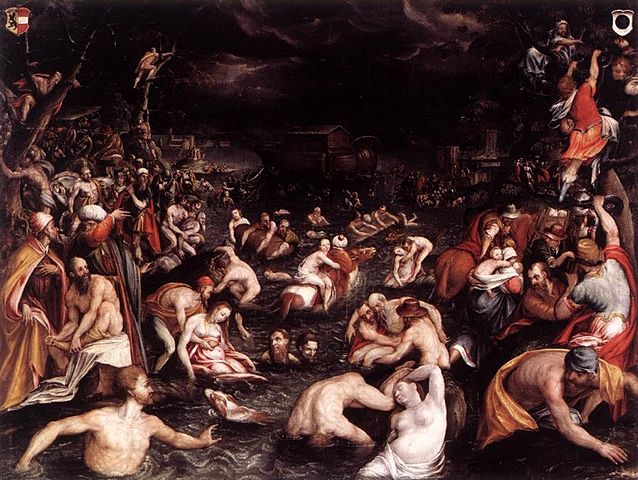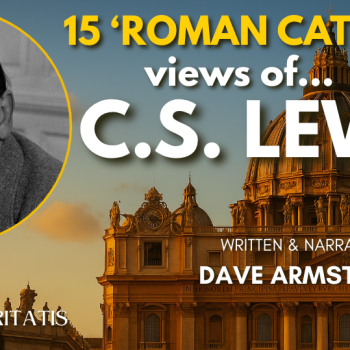
***
Of how little value it is in the sight of God, in regard to all the parts of life, Paul shows, when he says, that we are not “sufficient of ourselves to think any thing as of ourselves,” (2 Cor. 3:5). He is not speaking of the will or affection; he denies us the power of thinking aright how any thing cam be duly performed. Is it, indeed, true, that all thought, intelligence, discernment, and industry, are so defective, that, in the sight of the Lord, we cannot think or aim at any thing that is right? To us, who can scarcely bear to part with acuteness of intellect (in our estimation a most precious endowment), it seems hard to admit this, whereas it is regarded as most just by the Holy Spirit, who “knoweth the thoughts of man, that they are vanity,” (Ps. 94:11), and distinctly declares, that “every imagination of the thoughts of his heart was only evil continually,” (Gen. 6:5; 8:21). If every thing which our mind conceives, meditates plans, and resolves, is always evil, how can it ever think of doing what is pleasing to God, to whom righteousness and holiness alone are acceptable? (John Calvin, Institutes of the Christian Religion, Book II, 2:25)
. . . such is the depravity of his nature, that he cannot move and act except in the direction of evil. (II, 3:5)
Calvin interprets these passages in hyper-literalistic fashion. The language of the Psalms is often proverbial (in other words, it makes general observations, which admit of exceptions: sometimes very many). Elsewhere, Scripture indicates that things are not nearly so dire and hopeless as Calvin makes out, regarding “the thoughts of men”:
Proverbs 12:5 The thoughts of the righteous are just; the counsels of the wicked are treacherous.
Proverbs 15:26 The thoughts of the wicked are an abomination to the LORD, the words of the pure are pleasing to him.
Using Genesis 6:5 as a pretext for asserting universal evil thoughts of all men is rather silly, as plainly seen in the passage’s context. Three verses later it is shown that the statement was not an absolute universal: “But Noah found favor in the eyes of the LORD.” Likewise, Genesis 6:9 asserts: “Noah was a righteous man, blameless in his generation; Noah walked with God.”
God adds seven more people (Noah’s wife and his three sons and their wives: see 6:10; 7:7) to His roster of exceptions to Calvin’s alleged universal state of mankind in Genesis 7:1: “Go into the ark, you and all your household, for I have seen that you are righteous before me in this generation.”
Moreover, the following two verses clearly prove that the language cannot be interpreted literally, since if so, the second would contradict the first (and the second is one of Calvin’s “prooftexts” for total depravity):
Genesis 8:20-21 Then Noah built an altar to the LORD, and took of every clean animal and of every clean bird, and offered burnt offerings on the altar. [21] And when the LORD smelled the pleasing odor, the LORD said in his heart, “I will never again curse the ground because of man, for the imagination of man’s heart is evil from his youth; neither will I ever again destroy every living creature as I have done.
The same dynamic applies to other passages classically used by Calvinists and other Protestants in order to claim that everyone was absolutely evil and could do no good. Context shows that the passages utilized were never intended in the first place to teach such things.
But as I study brevity, I will be satisfied with a single passage, one, however, in which as in a bright mirror, we may behold a complete image of our nature. The Apostle, when he would humble man’s pride, uses these words: “There is none righteous no, not one: there is none that understandeth, there is none that seeketh after God. They are all gone out of the way, they are together become unprofitable; there is none that does good, no, not one. Their throat is an open sepulchre; with their tongues they have used deceit; the poison of asps is under their lips: Whose mouth is full of cursing and bitterness: their feet are swift to shed blood: destruction and misery are in their ways: and the way of peace have they not known: there is no fear of God before their eyes,” (Rom. 3:10–18). Thus he thunders not against certain individuals, but against the whole posterity of Adam—not against the depraved manners of any single age, but the perpetual corruption of nature. His object in the passage is not merely to upbraid men in order that they may repent, but to teach that all are overwhelmed with inevitable calamity, and can be delivered from it only by the mercy of God. As this could not be proved without previously proving the overthrow and destruction of nature, he produced those passages to show that its ruin is complete. (II, 3:2)
This is a prime example of what I just described. Romans 3 is often cited by Calvinists, following Calvin (above). It’s one of their favorite prooftexts. Romans 3:10-12 is itself a citation that St. Paul took from the Psalms:
Psalm 14:1-3 The fool says in his heart, “There is no God.” They are corrupt, they do abominable deeds, there is none that does good. [2] The LORD looks down from heaven upon the children of men, to see if there are any that act wisely, that seek after God. [3] They have all gone astray, they are all alike corrupt; there is none that does good, no, not one.
The very next Psalm is (amazingly enough) entirely devoted to “good people”:
Psalm 15:1-5 O LORD, who shall sojourn in thy tent? Who shall dwell on thy holy hill? [2] He who walks blamelessly, and does what is right, and speaks truth from his heart; [3] who does not slander with his tongue, and does no evil to his friend, nor takes up a reproach against his neighbor; [4] in whose eyes a reprobate is despised, but who honors those who fear the LORD; who swears to his own hurt and does not change; [5] who does not put out his money at interest, and does not take a bribe against the innocent. He who does these things shall never be moved.
Even two verses after Psalms 14:3, King David writes that “God is with the generation of the righteous” (14:5). In the very next verse (14:4) David refers to “the evildoers who eat up my people.” Now, if he is contrasting the evildoers with His people, then obviously, he can’t possibly be implying that everyone is evil, so that there are no righteous folks at all to be found.
The anonymous psalmist in 112:5 refers to a good man (Hebrew, tob), as does the book of Proverbs repeatedly (11:23, 12:2, 13:22, 14:14, 19), using the same word, tob, which appears in Psalm 14:2-3. References to righteous men are innumerable (e.g., Job 17:9; 22:19; Ps 5:12; 32:11; 34:15; 37:16, 32; Mt 9:13; 13:17; 25:37, 46; Rom 5:19; Heb 11:4; Jas 5;16; 1 Pet 3:12; 4:18; etc., etc.).
Jewish idiom and hyperbole of this sort appears in many other similar passages. For example, Jesus says:
Luke 18:19 No one is good but God alone. (cf. Mt 19:17)
Yet He also said:
Matthew 12:35 The good person brings good things out of a good treasure. . . . (cf. 5:45; 7:17-20; 22:10)
Jesus is drawing a strong contrast between our righteousness and God’s, but He doesn’t deny that we can be “good” in a lesser sense. Psalm 53:1-3 provides a similar example, almost identical to Psalm 14. Again, we see other proximate Psalms refer to the “righteous” or “godly” (e.g., 52:1, 6, 9; 53:4; 55:22; 58:10-11).
Romans 3:11 states, “no one seeks for God,” and in Psalms 14:2, God looks “to see if there are any that act wisely, that seek after God.” This is again hyperbolic language, and we know this because many passages teach us that many men did seek after God (e.g., Deut 4:29; 1 Chr 16:10-11; 22:19; 2 Chr 11:16; 15:12-13; 30:19; Ps 34:10; 69:32; Prov 28:5; Is 51:1; 55:6; Jer 50:4; Hos 3:5; Amos 5:6; Zeph 2:3; Zech 8:21-22; Acts 17:27).
Quite obviously, then, it is not the case that “no one” whatsoever seeks God. Passages that seem to be utterly sweeping need to be understood in terms of literary genre, immediate context, and in light of other relevant and related Bible verses.
The Bible is God’s inspired and infallible Word. It is completely self-consistent and always harmonious with itself. But Calvin’s prior theological system that he brings to Scripture would cause it to massively self-contradict. Since we believe in faith that this isn’t possible, false tenets of Calvin’s system need to be discarded, in cases where it causes this unworthy result.
The above illustrative example shows how Calvin’s exegetical reasoning fails, and does violence to Holy Scripture, rightly understood. Once again, the Catholic understanding is demonstrated to be far more in line with the Bible.
*****
See also the excellent discussion thread underneath the original posting of this paper.












